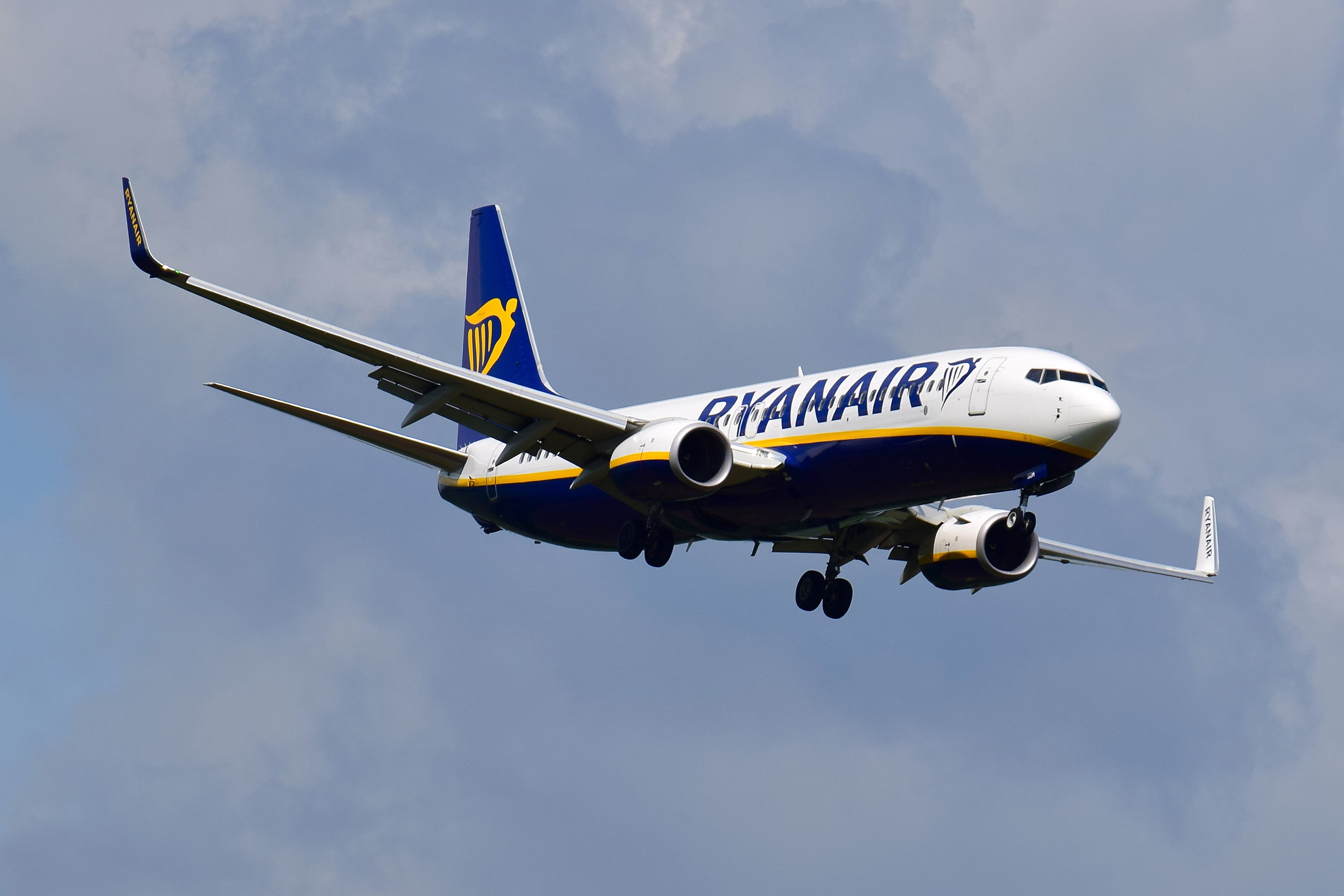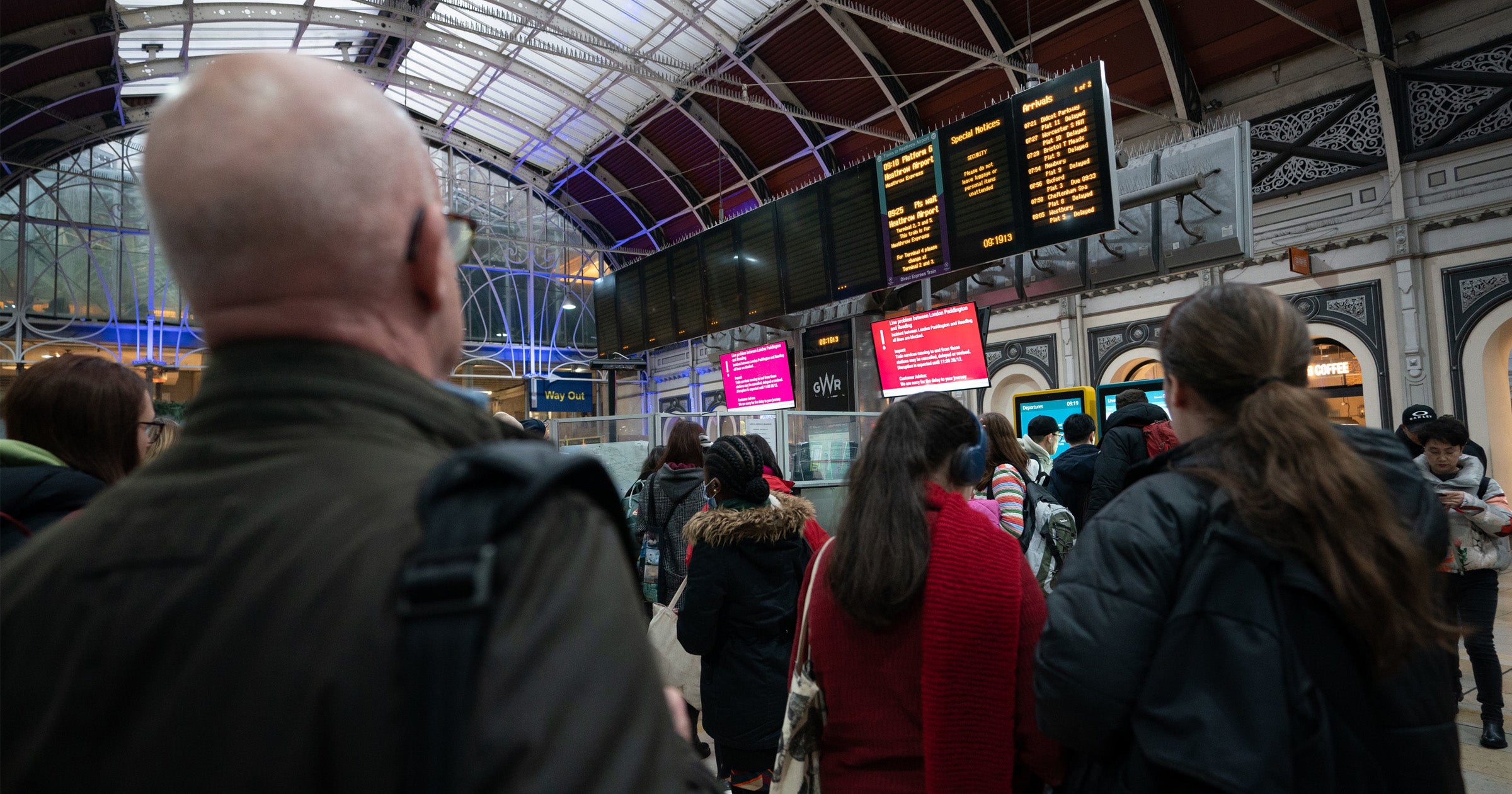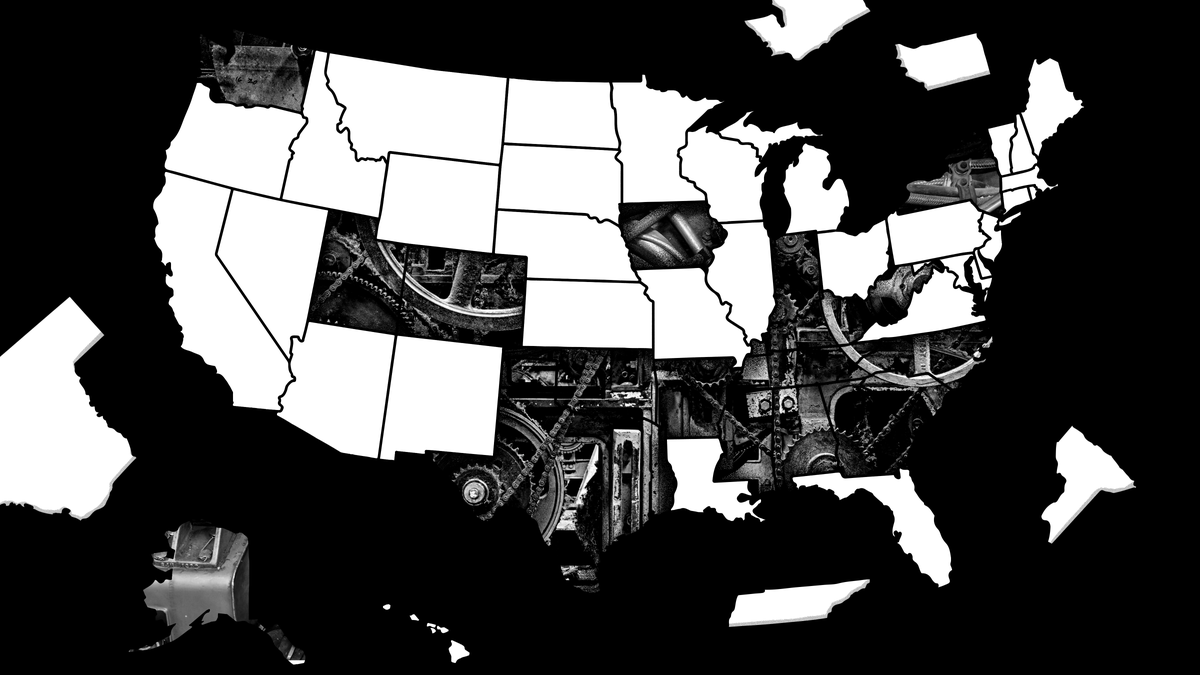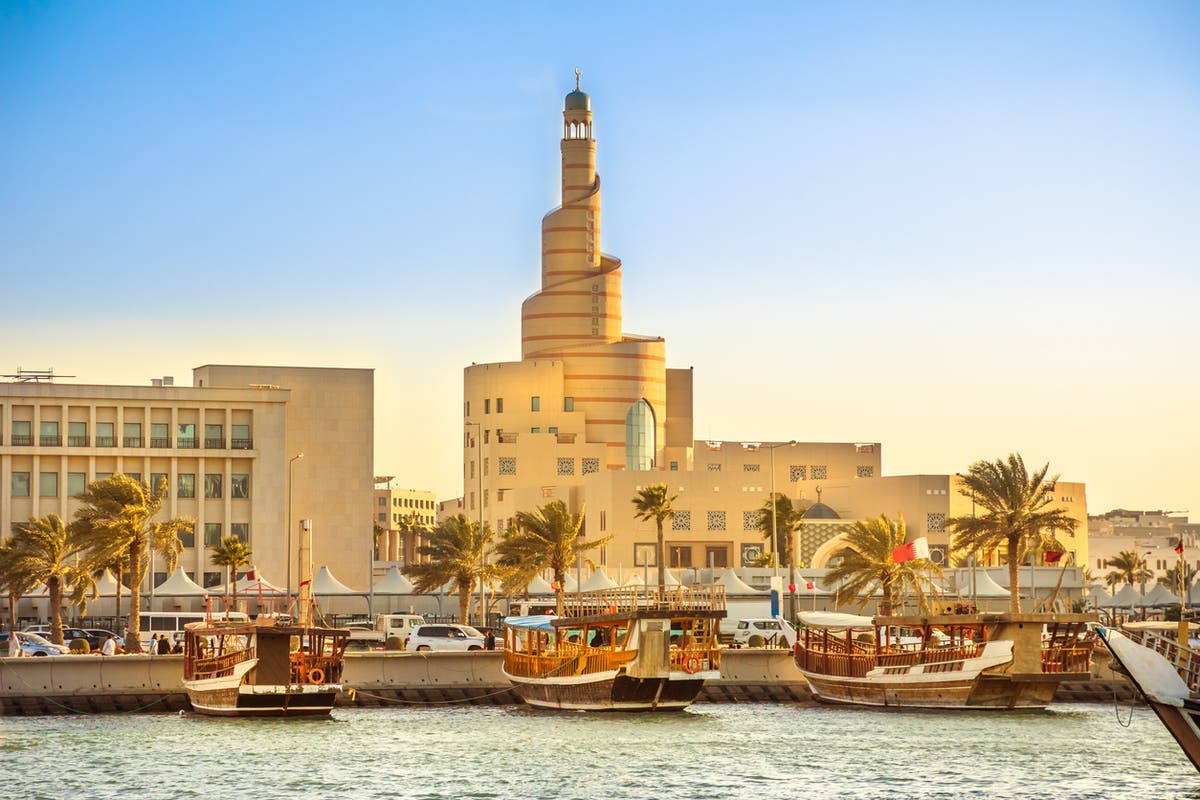Bank holiday travellers face air traffic control delays plus rail and road disruption
Streamers from the Notting Hill Carnival became entangled in overhead wires outside London Paddington, halting rail services on Sunday evening

Support truly
independent journalism
Our mission is to deliver unbiased, fact-based reporting that holds power to account and exposes the truth.
Whether $5 or $50, every contribution counts.
Support us to deliver journalism without an agenda.

Air traffic control problems are returning to haunt August bank holiday travellers – as rail and road disruption also takes hold across the country.
Over the weekend many passengers have experienced delays as a result of what Ryanair calls an “air traffic control staff shortage” across the continent.
Europe’s biggest budget airline said one in eight of its “first wave” of flights on Monday was delayed because of air traffic control (ATC) hold-ups. The airline posted on its website: “These repeated flight delays due to ATC mismanagement are unacceptable. We apologise to our passengers for these repeated ATC flight delays which are deeply regrettable but beyond Ryanair’s control.”
On the same bank holiday Monday last year air traffic control systems at Nats, the main UK air navigation provider, shut down in response to an unusual flight plan. Around 2,000 flights were cancelled and 700,000 passengers had their travel plans wrecked.

At least one flight on Sunday night was diverted because delays had built up so much, with easyJet flight 8483 from London Gatwick to Basel taking off more than two hours late. The Airbus jet was making a normal approach to the Franco-Swiss airport when about 10 minutes from landing it changed course and flew around 200 miles to Lyon.
Passengers were told: “We’re very sorry that your flight has now been diverted. This is due to air traffic control restrictions throughout today [which] have delayed your flight outside of the opening hours of Basel airport.
“Some airports have strict operating times which cannot be extended. As a result we had no option but to divert your flight.”
They completed the journey through the night on buses. But passengers waiting at Basel to fly to London were told their flight was cancelled and the plane flew empty from Lyon back to Gatwick.
A spokesperson for easyJet said: “Flight EZY8483 from London Gatwick to Basel on 25 August was required to divert to Lyon due to earlier delays caused by air-traffic control restrictions, which meant the aircraft would not have been able to reach Basel before the airport’s night curfew. As a result, the return flight EZY8484 from Basel to Gatwick was cancelled.
“We did all possible to minimise the impact of the disruption for our customers and provided onward coach transfers to Basel for passengers on the diverted flight. Passengers whose flight was cancelled were entitled to a refund or a transfer to the next available flight and were offered hotel accommodation and meals where required.
“Whilst this was outside of our control, easyJet would like to apologise to passengers for any inconvenience caused. The safety of its passengers and crew is the airline’s highest priority.“
Yet at least five other easyJet aircraft landed at Basel after the flight from London would have touched down. The Independent has asked easyJet for clarification.
Thousands of airline passengers also found their rail journeys to and from the key London airports disrupted on Sunday night by a series of issues.
Lines in and out of London Paddington were closed for a time after streamers from the Notting Hill Carnival became entangled in overhead wires.
A spokesperson for Network Rail said: “We had a series of incidents around the Ladbroke Grove area, including a reported trespasser and objects thrown onto the overhead lines in multiple locations, which meant that passenger services could not safely be run on all lines.

“Passenger services were therefore restricted whilst the objects, which turned out to be plastic streamers that had become entangled in the overhead wires, were safely removed.
“We’re incredibly sorry to any passengers disrupted and thank them for their ongoing patience and understanding during this time.”
In addition there was a track issue plus an electrical failure on the Thameslink line linking Luton and Gatwick airports with central London, and a broken rail at Harlow that halted the Stansted Express.
Rail passengers have so far endured a much worse bank holiday weekend than expected. Long-planned engineering work has disrupted three key intercity lines to and from London, with closures, cancellations and diversions.
The East Coast main line, which connects London King's Cross with Yorkshire, northeast England and Scotland, has now reopened – but LNER, the main operator has some curtailed trains as a result of staff shortage and overrunning engineering work elsewhere.
On the West Coast main line, engineering work at London Euston – for the now-paused HS2 project – has reduced the number of trains. And the Great Western route through the Severn Tunnel is closed, with trains between South Wales and London diverted via Gloucester – extending journeys by an hour.
Away from the engineering work, GWR passengers faced widespread cancellations due to staff shortage: one in 10 trains on Sunday was cancelled, with passengers urged to travel on Monday instead. But that will add to pressure on already heavily booked services.

Insufficient staff is also affecting other rail firms. West Midlands Railway is warning: “Due to an anticipated lack of available train crew at key locations across our Snow Hill lines and Worcester - Hereford routes through the bank holiday weekend, we are unfortunately expecting disruption to train services.”
Many trains are expected to be cancelled, with limited rail replacement buses.
On the roads, the RAC predicts heavier bank holiday traffic than at any time since it started recording data in 2015. Delays are expected on roads serving coastal resorts and on routes for the Leeds and Reading music festivals.
Returning motorists from continental Europe could encounter problems at Calais due to enhanced post-Brexit passport checks.
Strikes affecting travellers resume next weekend. At London Heathrow, 650 officers working for UK Border Force will stop work from 31 August to 3 September in a dispute over rosters. Also on 31 August, train drivers belonging to Aslef will begin 11 weekends of walkouts over a range of issues.

 Astrong
Astrong 
































